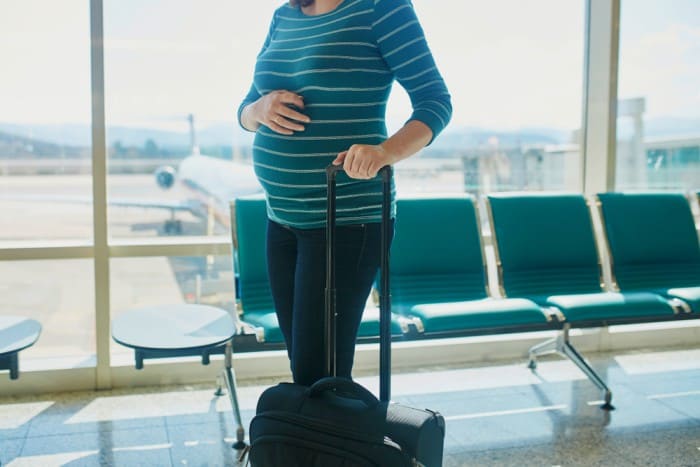
Wondering whether it is safe to travel with a baby in your womb?
Let’s dive in to know!
Usually, women who are pregnant choose to work during pregnancy. While some can work until the day of delivery, others need to cut back their working schedules before the due date.
However, working or not in pregnancy depends entirely on the women’s health, the health of the baby and the type of job you are doing.
While, some work schedules and meetings are manageable, others involve traveling to outstations or perhaps overseas, which is sometimes difficult for pregnant women. Have a look at the some of the tips to make your pregnancy-travel easy:
Consult Your Doctor Before Packing Bags:
Your healthcare provider knows whether it’s safe for you to travel or not. Since most of the complications happen during the first and the last trimester, you should consult the doctor to be sure of any.
If there are complications, avoid travelling and take rest. If the difficulties are severe, take maternity leaves. As per California pregnancy and maternity leaves law, women can work from home or can take complete work-leave for six months.
Women with serious pregnancy concerns need to be extra cautious and should avoid travel.
Travel With All Medical Papers:
Before you pack your bags to board a flight, make sure to keep all medical documents. Also, carry a list of names and phone numbers that you would need in case of emergencies. Make sure you have a hard copy of them as well they are on your phone.
If you are in the second trimester, ask your doctor to provide you with a prenatal chart and keep that handy during the trip. The prenatal table usually includes your age, blood type, name, contact information, your due delivery date, risk factors for the disease, pregnancy related-test information, surgical history and other relevant information.
Pack Your Medications:
Make sure to pack enough supply of prescription medications, suggested vitamins and all other vital medicines you would need during the trip, especially when you are travelling to the area where medicines are not in your proximity.

Also, make sure to keep all tablets in their original form so that if your bags are checked, you will not be using medication without the prescription. Keep a handful of medications and a written prescription that you can use if you lose any medicine.
Choose Your Mode Of Travel:
Look for the most comfortable and easiest way to get in and out to your destination. While flights and trains are preferable for long road trips, you can also travel by bus or car for short trips. Just make sure:
Ideally, you can go by plane for up to your 36th week; however, make sure to check the policies of airlines.
Depending on the cruise line, the last acceptable time for traveling through the sea is 23-27 weeks.
However, if you are going by bus, train or car, you can travel up to the end of the due date, but make sure to keep in touch with your doctor. Stay at the driving distance from your doctor and hospital.
Keep An Eye On Your Health Insurance Policy:
Find out whether your insurance policy covers the travel complications in other country or not. If not, it’s the time to purchase additional insurance. Also look if it needs renewal, or the due date of the policy will lie in your trip. If so, get it done beforehand.
If you are going on a foreign trip, make sure to discuss it with your doctor. Tell them about the location and other things you will be doing on the trip.
Have Travel Insurance In-Hand:
Travel insurances cover all those expenses that you miss in your coverage or are the part of the trip. It also includes all road or air emergency expenses. Before having the one, make sure that the policy covers all pregnancy complications and emergency medical allowances from your respective destination.
If You Are Flying, Check The Airline Policies:
Although different airlines have different rules, many airlines don’t allow pregnant women fly during the last week or month of pregnancy; some won’t let women with the first trimester. Some airlines also demand written permission from the healthcare allowing the women to travel.
No matter whether you are travelling by plane or car or perhaps by train, always follow these tips:
- Eat regularly and continually. Don’t starve; this will not only hamper your health but your baby’s as well.
- Avoid dehydration and drink plenty of water.
- Walk for at least 5 minutes after every hour to keep swelling down and blood circulation going.
- Wear comfortable footwear’s and clothes.
- Much crackers and snacks after every interval to avoid nausea.
While pregnancy is hard, the tips mentioned above will help you deal with ease!
